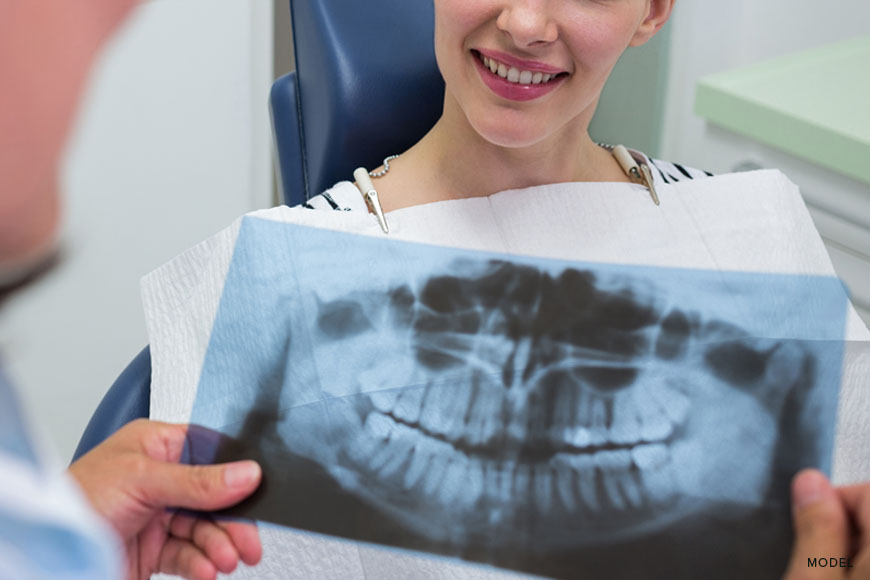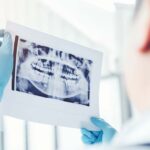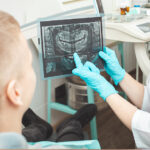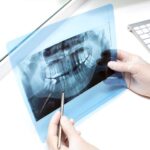Dental X-rays during pregnancy is essential to prioritize for your growing baby. Maintaining good oral hygiene is essential for overall health, and it becomes even more crucial during pregnancy. Hormonal changes during pregnancy can increase the risk of gum disease and infections. Additionally, poor oral health has been linked to preterm birth and low birth weight. Therefore, it is vital to continue with regular dental check-ups and cleanings during pregnancy to prevent any potential complications.
Many expectant mothers may have concerns about undergoing dental procedures or X-rays during this special time. Dental X-rays, also known as dental radiographs, are commonly used by dental practitioners to diagnose and treat oral health issues. However, it is crucial to understand the safety guidelines and precautions associated with dental X-rays while pregnant.
Radiation Level Awareness for Expectant Mothers
The potential harm to the developing fetus due to radiation exposure is a matter of concern for expectant mothers. This risk primarily depends on the radiation dose received and the gestational stage at which exposure occurs. The first trimester is considered to be a critical time when the baby’s organs and tissues are forming, making it potentially more susceptible to harm from radiation.
Research suggests that a radiation dose of 100 mGy or higher during the first trimester may pose an increased risk of birth defects. However, it’s essential to understand that dental X-rays emit significantly lower radiation doses compared to other medical imaging procedures. As mentioned earlier, a single dental X-ray typically exposes the patient to a radiation dose in the range of 0.005 to 0.01 mSv, which is several orders of magnitude lower than the potential harmful threshold.
To put your mind at ease, let’s put this into perspective. The amount of radiation exposure during a standard dental X-ray is approximately 0.02 mSv. For any harm to occur to you or your baby, you would need to be exposed to at least 2,500 times that amount, which is highly unlikely during routine dental procedures. Moreover, the radiation is localized only to your mouth, and your baby remains shielded from exposure.
Dental X-Rays during Pregnancy: Safety Measures
To protect both the mother and the developing baby, certain precautions should be followed if dental X-rays are deemed necessary during pregnancy. These guidelines are developed by various dental and medical professional organizations, including the American Dental Association (ADA), and are designed to minimize any potential risks associated with radiation exposure.
Here are some key precautions and guidelines to consider:
- Inform your dentist: Always let your dental practitioner know that you are pregnant as soon as you schedule your appointment. Your dentist can then take necessary precautions and determine if dental X-rays are truly necessary.
- Delay routine x-rays: Routine check-up X-rays can usually be postponed until after your baby is born. Dentists may utilize alternative diagnostic methods or treatments during pregnancy to ensure you and your baby’s safety.
- Use protective gear: If dental X-rays cannot be postponed and are required for urgent dental treatment, the use of a lead apron or thyroid collar is essential. These protective accessories help shield the abdomen and thyroid from radiation exposure, minimizing the potential risks to the developing fetus.
- Limit x-ray exposure: Dental practitioners follow the ALARA principle when it comes to radiation exposure. They will aim to use the lowest radiation dose necessary to obtain the diagnostic information required. This ensures minimal exposure without compromising the quality of care.
- Advise your dentist of pregnancy stage Since the first trimester of pregnancy is the most critical period for fetal development, additional precautions should be taken to minimize any potential risks.
Maintaining Healthy Smiles for Moms-to-Be

Apart from dental X-rays during pregnancy, there are several other factors to consider for maintaining optimal dental health:
- Oral hygiene routine: Continue to follow a thorough oral care routine, which includes brushing your teeth twice a day with fluoride toothpaste, flossing daily, and using mouthwash as recommended by your dentist.
- Diet: A balanced and nutritious diet is beneficial for both you and your baby’s overall health. Avoid excessive sugary snacks and drinks, as they can contribute to dental decay.
- Regular dental check-ups: Schedule regular dental appointments for check-ups and cleanings. It is generally recommended to visit your dentist at least once during your pregnancy, preferably during the second trimester.
- Morning sickness: If you experience frequent vomiting due to morning sickness, rinse your mouth with water or a fluoride mouthwash afterward to neutralize the acid and protect your tooth enamel from erosion.
- Gum health: Pay special attention to your gum health during pregnancy. Hormonal changes can make your gums more sensitive and prone to inflammation. Maintain good oral hygiene and consider using a soft-bristled toothbrush and a gentle, non-alcoholic mouthwash.
In dental x-rays during pregnancy, provided necessary precautions are taken. The minimal radiation exposure during a dental x-ray poses no harm to your baby. Maintaining good oral health is vital during pregnancy, and dental x-rays play a crucial role in detecting early signs of tooth decay and gum disease.
Remember, your oral well-being matters at every stage of life, and pregnancy is no exception. When you need dental x-rays during pregnancy, we encourage you to schedule a consultation with our expert dentists at Madison Dentistry. We take the time to understand your specific needs and concerns, tailoring our approach to ensure that you have a safe and positive experience.




